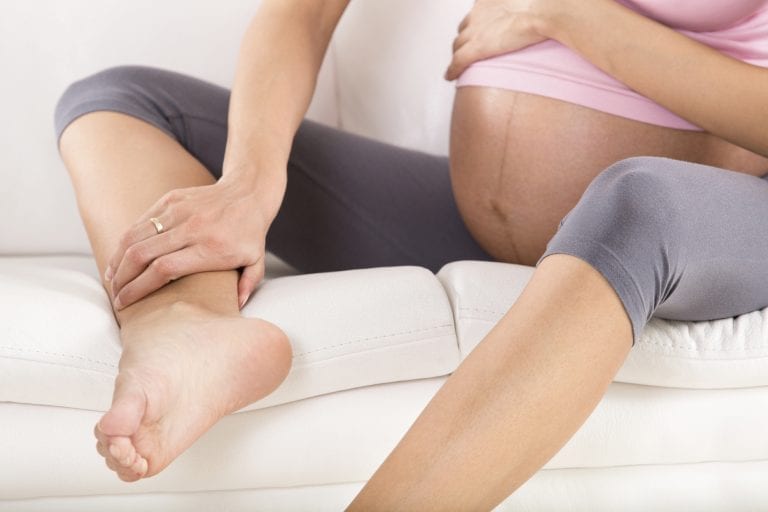You’re not imagining it—your ankles are swelling. And maybe your hands are too. More than 70 percent of pregnant women experience this (edema) in pregnancy. So, how do you know what’s normal—and what’s not?
Your body goes through many changes as it adapts to your growing baby. Your body increases the amount of blood flowing through your veins, as well as other fluids—by as much as 50 percent! As your uterus expands, it puts increased pressure on the veins in your lower extremities, making it harder for your heart to pump blood back from your legs, leading to a shift in fluids and swelling in your legs and feet.
You’ll notice that swelling typically occurs late in the day or if you’ve been standing for a long period of time. Fluid can also accumulate around the nerves in your wrist, mimicking something called carpel tunnel syndrome, which may cause pain, numbness, burning or tingling of the hands or wrists.
These symptoms aren’t comfortable, and can be annoying, but typically they’re little more than common pregnancy discomforts that can be remedied with rest. As always, if you become concerned about any symptoms you have, call you doctor or nurse-midwife and they will be happy to answer your questions.
Help Prevent Swelling in Pregnancy
- Elevate feet 2-3 times a day for 30 minutes (at your desk raise your feet on a small stool or chair)
- If you have the opportunity, lay down with your feet elevated, or lay on your side 2-3 times a day for 30 minutes or so
- Avoid tight fitting stockings or items with elastic at the knee (knee highs)
- Avoid sitting with your legs crossed
- Wear special maternity hose or stockings meant to reduce swelling
- Wear comfortable shoes and be active
- Sleep on your side (this keeps the pressure of the uterus off the large vein in your back)
- Drink plenty of water (restricting your water intake will not help with swelling)
When Swelling is Dangerous
Call your healthcare provider right away if you experience any of the following in pregnancy:
- If your hands or face start to swell
- Sudden, large amounts of swelling
- If only one leg swells
- If you’re gaining more than 2 pounds per week
- Swelling accompanied by:
- Unusual vision: spots before your eyes, blind spots
- Headaches not relieved by acetaminophen
- Bad heartburn






Comments are closed.